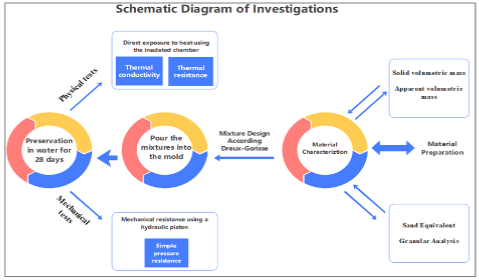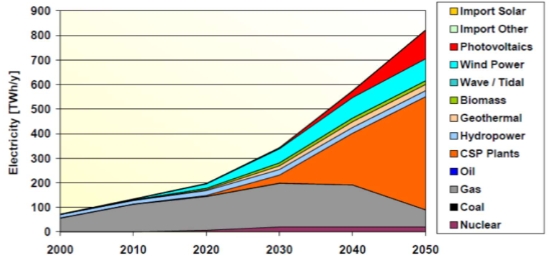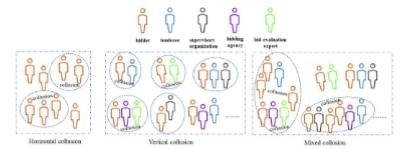Finite elemental assessment of torsional behavior of RC beams having different shear reinforcement
Abstract
In this paper, the torsional behavior of 8 beams in 4 categories with 2 different ultimate concrete compressive strengths (22.92 MPa and 43.47 MPa) was evaluated, and the best alternative of shear reinforcement pattern compared to the conventional non-welded rectangular stirrup beam (NRSB) was determined. 4 types of beams were modeled using SolidWorks, namely—Non-welded Rectangular Stirrup Beam (NRSB), Welded Rectangular Stirrup Beam (WRSB), Normal Welded Warren Truss-shaped Beam (NWWTB), and Flipped Welded Warren Truss-shaped Beam (FWWTB). The dimension and weight of reinforcement were kept the same for all beams. After simulating using ANSYS, it was seen that WRSB specimens had the largest torsional moment capacity, while NWWTB in normal orientation showed marginal improvement compared to NRSB.
References
[1]Panchacharam S, Belarbi A. Torsional behavior of reinforced concrete beams strengthened with FRP composites. First FIB Congress, Osaka, Japan. 2002; 1: 01-110.
[2]Deifalla A, Ghobarah A. Full torsional behavior of RC beams wrapped with FRP: Analytical model. Journal of Composites for Construction. 2010; 14(3): 289-300.
[3]Mahzuz HMA, Ahmed M, Islam MdM, et al. Influence of truss-type and welded reinforcement in concrete beam. International Journal of Structural Engineering. 2022; 12(2): 144. doi: 10.1504/ijstructe.2022.121911
[4]Prasanthni P, Priya B, Palanisamy T, et al. Enhancing PVCC beam performance through PVA fiber and basalt fabric in sustainable construction: ductility, strength, and energy absorption improvements. Matéria (Rio de Janeiro). 2024; 29(1). doi: 10.1590/1517-7076-rmat-2023-0299
[5]Mohanraj R, Senthilkumar S, Padmapoorani P. Mechanical properties of RC beams with AFRP sheets under a sustained load. Materiali in Tehnologije. 2022; 56(4). doi: 10.17222/mit.2022.481
[6]Demir A, Caglar N, Ozturk H, et al. Nonlinear finite element study on the improvement of shear capacity in reinforced concrete T-Section beams by an alternative diagonal shear reinforcement. Engineering Structures. 2016; 120: 158-165. doi: 10.1016/j.engstruct.2016.04.029
[7]Saju SM, Usha S. Study on flexural strength of truss reinforced concrete beams. International Research Journal of Engineering and Technology. 2016: 1541-1545.
[8]Al-Nasra MM, Asha NM. Shear reinforcements in the reinforced concrete beams. American Journal of Engineering Research (AJER). 2013; 2(10): 191-199.
[9]Khan MU, Fahad M, Shahzada K. Shear Capacity Assessment of Reinforced Concrete Beams Using Swimmer Bars as Shear Reinforcement. International Journal of Civil Engineering. 2020; 2(6): 14-20. doi: 10.14445/23488352/ijce-v2i6p104
[10]Mahzuz HMA, Nury AH, Ahmed M, et al. Enhancing torsional performance of reinforced concrete beams: a comparative analysis of shear reinforcement strategies. Discover Civil Engineering. 2024; 1(1). doi: 10.1007/s44290-024-00029-3
[11]Khan HU. Identification of shear cracks in reinforced beams using finite element method (ANSYS). Pakistan Journal of Science. 2014: 66(1).
[12]Subramani T, Manivannan R, Kavitha M. Crack identification in reinforced concrete beams using ANSYS software. J. Eng. Res. Appl. 2014; 4(6): 133-141.
[13]Cucchiara C, La Mendola L, Papia M. Effectiveness of stirrups and steel fibres as shear reinforcement. Cement and Concrete Composites. 2004; 26(7): 777-786. doi: 10.1016/j.cemconcomp.2003.07.001
[14]Nilson AH, Dolan CW, Darwin D. Design of concrete structures, 14th ed. McGraw-Hill Education; 2009.
[15]Saifullah I, Hossain MA, Uddin SMK, et al. Nonlinear analysis of RC beam for different shear reinforcement patterns by finite element analysis. International Journal of Civil & Environmental Engineering. 2011; 11(1): 63-74.
[16]Hasan K, Alam MM, Mahzuz HMA, Hasan K. FE simulation of reinforced concrete beam using ANSYS for several patterns of shear reinforcement. In: Proceedings of the 5th International Conference on Advances in Civil Engineering, CUET, Chattogram-4349; 2021; Bangladesh. pp.143-150.
[17]Dahmani L, Khennane A, Kaci S. Crack identification in reinforced concrete beams using ANSYS software. Strength of Materials. 2010; 42(2): 232-240. doi: 10.1007/s11223-010-9212-6
[18]Vasudevan G, Kothandaraman S, Azhagarsamy S. Study on Non-Linear Flexural Behavior of Reinforced Concrete Beams Using ANSYS by Discrete Reinforcement Modeling. Strength of Materials. 2013; 45(2): 231-241. doi: 10.1007/s11223-013-9452-3
[19]Vasudevan G, Kothandaraman S. Behavior prediction of RC beams-comparison of experimental, FEA and analytical methods. In: IEEE-International Conference on Advances in Engineering, Science and Management (ICAESM-2012). pp. 365-370
[20]Kandekar SB, Talikoti RS. Study of torsional behavior of reinforced concrete beams strengthened with aramid fiber strips. International Journal of Advanced Structural Engineering. 2018; 10(4): 465-474. doi: 10.1007/s40091-018-0208-y
[21]Rathi S, Kandekar S, Talikoti R. Strengthening of RC beam using carbon and aramid fiber for its torsional behavior. Int J Sci Res Dev. 2015; 3(07): 416-419.
[22]Azimi M, Ponraj M, Bagherpourhamedani A, et al. Shear capacity evaluation of reinforced concrete beams: finite element simulation. Jurnal Teknologi. 2015; 77(16). doi: 10.11113/jt.v77.6400
[23]Vasudevan G, Kothandaraman S. Parametric study on Nonlinear Finite Element Analysis on flexural behaviour of RC beams using ANSYS. International journal of civil & structural engineering. 2011; 2(1): 98-111.
[24]Fanning P. Nonlinear Models of Reinforced and Post-tensioned Concrete Beams. Electronic Journal of Structural Engineering. 2001; 1(2): 111-119. doi: 10.56748/ejse.1182
[25]Musmar MA, Rjoub MI, Hadi MA. Nonlinear finite element analysis of shallow reinforced concrete beams using SOLID65 element. Elastic. 2006; 25743: 0-3.
[26]Mohanraj R, Vidhya K. Evaluation of compressive strength of Euphorbia tortilis cactus infused M25 concrete by using ABAQUS under static load. Materials Letters. 2024; 356: 135600. doi: 10.1016/j.matlet.2023.135600
[27]Krishnasamy R, Johnson SC, Kumar PS, et al. Experimental Investigation of Lateral Load Test on Diagonal Braced 3M Glass Fiber Reinforced Polymer Transmission Tower. Power Research. A Journal of CPRI. 2024: 225-231. doi: 10.33686/pwj.v19i2.1150
[28]Ravikumar K, Palanichamy S, Singaram CJ, Rajendran M. Crushing performance of pultruded GFRP angle section with various connections and joints on lattice towers. Matéria (Rio de Janeiro). 2023; 28(1): e20230003
[29]Ravikumar K, Singaram CJ, Palanichamy S, et al. Testing and Evaluation of Buckling and Tensile Performance of Glass Fiber–Reinforced Polymer Angle Section with Different Joints/Connections. Journal of Testing and Evaluation. 2024; 52(1): 621-638. doi: 10.1520/jte20230010
[30]MacGregor JG, Wight JK, Teng S, Irawan P. Reinforced concrete: Mechanics and design. Prentice Hall Upper Saddle River, NJ; 1997. p. 3.
Copyright (c) 2024 Warda Jannat Juhin, Raihan Uddin Ahmed, H. M. A. Mahzuz, Md. Ariful Islam

This work is licensed under a Creative Commons Attribution 4.0 International License.












